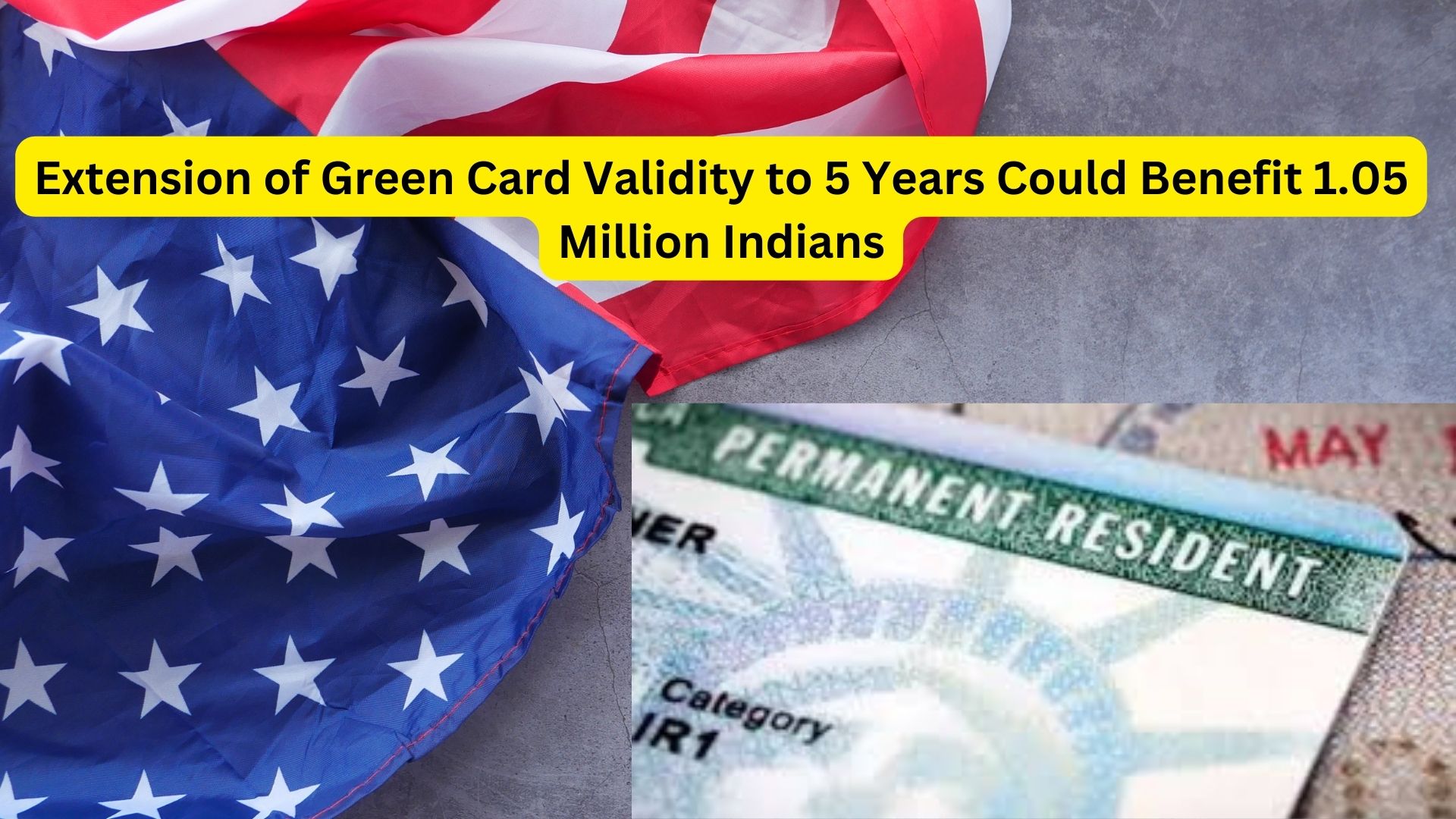
In a recent development, the United States has announced an extension of employment authorization cards for select non-immigrant categories, including those individuals awaiting green card approvals, for a duration of five years. This policy shift by the U.S. government is expected to have a significant positive impact on approximately 1.05 million Indian residents living in the United States who are in the queue for employment-based Green Cards.
On a recent Friday, the United States Citizenship and Immigration Services (USCIS) declared that it would be prolonging the maximum validity period of Employment Authorization Documents (EAD) to five years, both for initial issuances and renewals. This extended validity applies to certain non-citizens who need to apply for employment authorization, such as asylum or withholding of removal applicants, those pursuing an adjustment of status under INA 245, and individuals with pending suspension of deportation or cancellation of removal cases.
The primary objective of this policy change is to reduce the influx of new Forms I-765, applications for Employment Authorization, that the USCIS receives for EAD renewals over the coming years. This action is part of a broader strategy to decrease processing times and backlogs associated with employment authorization requests.
It’s important to note that the duration of employment authorization for non-citizens is contingent on their specific immigration status, individual circumstances, and the EAD filing category. For instance, if an individual received an EAD based on a pending adjustment of status application for five years and subsequently has their adjustment application denied, their employment authorization may terminate before the expiration date listed on their EAD.
A Green Card, also known as a permanent resident card, grants immigrants the right to live permanently in the United States. However, there are numerical limitations on the issuance of Green Cards for individuals from certain countries.
A study released in September revealed that over 1.05 million Indians are currently in the queue for an employment-based Green Card in the United States. Alarmingly, a portion of these individuals, approximately 400,000, may pass away while awaiting the issuance of their permanent residency documents. Additionally, nearly 250,000 cases are attributed to applicants from China, constituting 14 percent of the backlog.
The study, conducted by David J. Bier of the Washington, D.C.-based Cato Institute, highlights that Indians account for a substantial 63 percent of the total backlog of 1.8 million Green Card applicants this year.
The majority of the backlog, over 50 percent, pertains to the EB-2 category, which includes employees with advanced degrees working for U.S. businesses. Another 19 percent of the backlog is in the EB-3 category, involving employees with at least a bachelor’s degree. Notably, a significant portion of these applicants are of Indian origin.
Also Read
Why Are Social Media Accounts Required for U.S. Visa Applications?
The study concludes that for new applicants from India, the backlog for the EB-2 and EB-3 categories, which are combined because applicants can switch between them, amounts to an effectively indefinite wait, estimated at 134 years. Tragically, around 424,000 employment-based applicants are projected to pass away while waiting for their Green Cards, with over 90 percent of them being Indian nationals. Given that Indians currently constitute approximately half of all new employer-sponsored applicants, this backlog means that roughly half of all newly sponsored immigrants will not receive their Green Cards in their lifetime.
